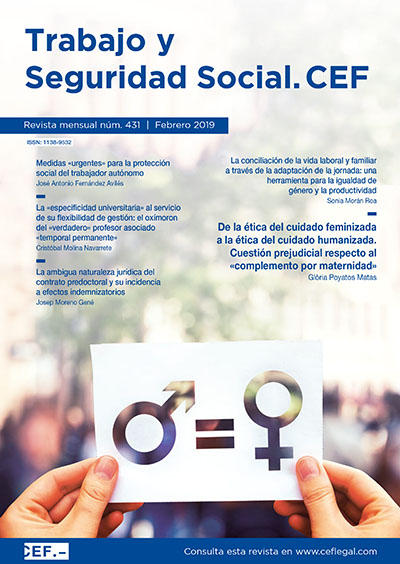From the ethics of feminized care to the ethics of humanized care. Concerning the question referred for a preliminary ruling the High Court of Justice of the Canary Islands concerning the «maternity supplement»
DOI:
https://doi.org/10.51302/rtss.2019.1374Keywords:
discrimination, gender, care, sexAbstract
This analysis deals with family care, working mothers,contributory bonuses and their extension, in some exceptional cases, to working fathers. Recently, a request for a preliminary ruling before the CJEU from the Canary Islands’ High Labor Court on the «Supplement for maternity», because of a possible discrimination on the basis of sex by absolute and unconditionally excluding the working fathers who can prove they have exclusively taken care of children, as was the case of the plaintiff, a contributory retirement pensioner, widower and father of four children whom he raised alone after their birthmother passing. Caring does not have sex, but gender, so it is imperative extending it to the other half of the population, thus walking towards a more coresponsible and (really) egalitarian society.
Downloads
References
Magallón Portolés, C. (1998). Contribuciones feministas a una política de paz. En A. M. Portal Nieto (Ed.), Mujeres, derecho, participación política y empleo (pp. 85-106). Castellón de la Plana: Comunidad Europea: Fondo Social Europeo, Universitat Jaume I, Proyecto NOW 1998.



















